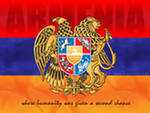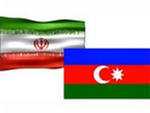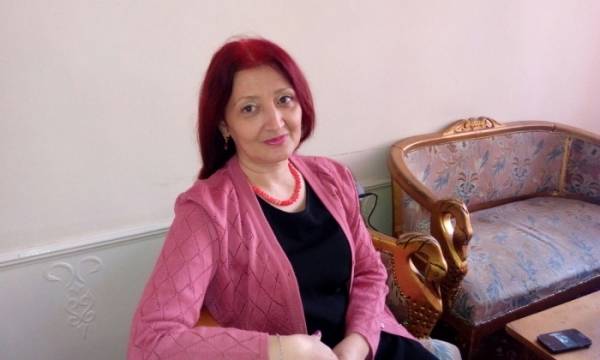foto -geography.about.com
Gulnara Inandzh
Director
International Online Information Analytic Center Ethnoglobus
The emotions, whipped up by commentaries which followed the signing on October 10 of the protocols between Turkey and Armenia, have prevented a logical analysis of the situation. In order to begin such an analysis, we need to recognize that at the roots of the signing of these accords lie a multi-sided game of significance far beyond the South Caucasus region.
If at the outset, the opening of the borders with Armenia was one of the conditions on Turkey’s path toward joining the European Union, then at the present time, the rapprochement of the two countries depends on the geopolitical situation and Ankara’s participation in these processes. Immediately after the signing of the Turkish-Armenian accords, as one should have expected, the EU put forward some new demands for Turkey, about which the latter could not have but known about in advance. This means that Turkey signed the agreements with Armenia not as part of its effort to join the EU, something that provides one of the points of departure for understanding why Turkey decided to reach an agreement with Armenia.
At the same time, we must not ignore the pressures on Turkey both direct and behind the scenes. And those came from more places than just the capitals of the countries which were represented at the signing ceremony. (Here, we intentionally are not touching on the role of Israel in all these complicated political games, the situation around Iran, the transportation routes for Iraqi oil and the Kurdish element in Iraq, as each of these represent a distinctive subject for discussion).
Turkey, who bear the genetic code of the Ottoman Empire as far as great power games are concerned, will not agree to play the role of a defeated country even under the pressure of world powers. Ankara is not in such a weak geopolitical situation that it has to act in ways that harm its national interests. Not long ago, we should remember, Turkey felt itself strong enough to refuse the United States the right to use the military base at Incirlik for the supply of the anti-Saddam operations of the coalition forces in Iraq.
When pointing to the harm the protocols between Ankara and Yerevan create for Azerbaijan in the resolution of the Nagorno-Karabakh conflict, one must not forget that the Armenian diaspora has terrorized Turkey with the issue of the so-called “Armenian genocide.” In its turn, Turkish diplomacy, which connects this question with the resolution of the Nagorno-Karabakh conflict until recently took a position absolutely the same as Azerbaijan both because of their common Turkishness and because of Turkey’s own national interests. These two issues also served as a factor which united the Azerbaijani and Turkish diaspora, which resisted recognition of “the Armenian genocide” by pointing to the Armenian occupation of Azerbaijani lands.
Viewed from that perspective, it would seem that Turkey, which has little to gain economically and politically by reaching an accord with Armenia, signed the protocols in a way that both undercut its own interests and angered its fraternal and strategic relationship with Azerbaijan.
Of course, in contrast to the 1990s, Azerbaijan today is not the weak “younger brother” who needs support but an equal state that is confident in its own forces and demands respect on that basis. This cannot entirely please the current Turkish powers that be, but it is not the occasion for a break with a reliable partner. Differences in the question of the transportation of Azerbaijani gas to Turkey also cannot be the subject for speculation on such a strategic question as the opening of the Armenian-Turkish border.
During the entire period of talks with Armenia, official representatives of Turkey at various levels repeated that the relationship Ankara sought would not harm the interests of Azerbaijan and that the Turkish-Armenian borders will not be opened until the resolution of the Nagorno-Karabakh conflict. Among those who have constantly said this are Turkish President Abdulla Gul, Prime Minister Erdogan, Foreign Minister Ahmed Davutoglu, members of the parliament, opposition figures and others both before and after the signing of the protocols.
At the same time, every step of Armenian-Turkish negotiations was discussed with Baku, and talks about the peaceful resolution of the Nagorno-Karabakh issue continued in the framework of the OSCE Minsk Group.
And in this context, the declaration of Turkish President Gul concerning the impact in “a short time” of the Armenian-Turkish accords on “the resolution of the Nagorno-Karabakh conflict” merits attention and should calm many of the concerns in Azerbaijan.
At the present time, when Azerbaijan has acquired major geopolitical importance, ignoring its interests on such an important issue is impossible. Consequently, the interests of Baku were taken into consideration. Note that immediately after the signing in Switzerland of the Armenian-Turkish agreement Azerbaijani President Ilham Aliyev arrived in Zurich where the Nagorno-Karabakh conflict was discussed. Further, a short time after the signing of the agreement with the very same mission, Tina Kaidanow, the US Assistant Secretary of State for Europe and Eurasia arrived in Baku, and in the framework of the meetings of the foreign ministers of the Black Sea countries, Turkish Foreign Minister Ahmet Davutoglu met with President Ilham Aliyev and his foreign minister, Elmar Mammadyarov. And the visit to Baku of General Ishyk Koshaner, commander of Turkish ground forces, to meet with Azerbaijani Defense Minister Col. Gen. Safar Abiyev is yet another confirmation of this.
Taken together, it is clear that this cycle of visits was not a matter of chance.
And if there were any doubt about this, the reaction both within Armenian society and also in the diaspora to the accord which should allow Armenia to escape from the blockade has been negative. Evidently, Armenian society and politicians recognize that they will have to free the occupied territories, because otherwise no one intends to save Armenia. It is not accidental that after the signing of the Zurich agreement, all sides represented at the ceremony except for Armenian Foreign Minister Edvard Nalbandyan did not hide their satisfaction with what had taken place.
In other words, everything shows that the Zurich agreement will have a positive consequence on the resolution of the Nagorno-Karabakh conflict. Judging by the presence at the signing ceremony of the representatives of the OSCE Minsk Group, it is possible to assert that all interested sides are informed about this process and about its impact on the resolution of the Armenian-Azerbaijani conflict.
If under the pressure of the diaspora Armenia will not ratify the agreement, Azerbaijan and Turkey will return to where they were before. If the Turkish and Armenian parliaments all the same give legal force to the agreement, then Armenia will have to free Azerbaijani territories in order to secure the opening of the Turkish borders. Otherwise, Ankara, responding to public pressure in Azerbaijan and in Turkey will not be able to open the borders with Armenia. In that case, Azerbaijani and Turkish public opinion will be in a position to increase international pressure on Yerevan and the Armenian diaspora regarding the liberation of the occupied territories.
If Armenia does not follow through, then Turkey will always be in a position to find reasons to close the borders. In such a case, Azerbaijan will be left with only one choice – the liberation of the occupied territories by military means; and the countries involved in the division of spheres of influence in the region will have to agree with this. Otherwise Azerbaijan, using its status as “the most reliable country for the transportation of gas,” will have every reason for refusing to allow the Nabucco project to pass through its territory.
Every country has its own interests and priorities, and in this case, that means that there is no chance that Turkey will sacrifice its relations with Azerbaijan for new ties with Armenia.




